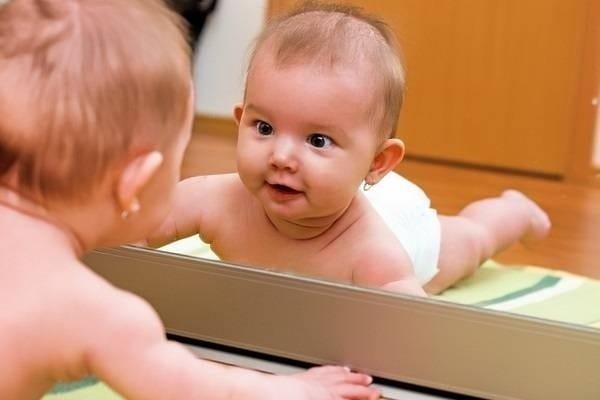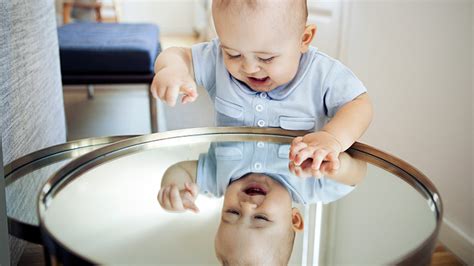Your basket is currently empty!

Mirrors are the best way to develop motor skills of infant and toddler
Mirrors are more than just reflective surfaces. They serve as essential tools in the growth and development of toddlers. A study featured in the Early Childhood Education Journal revealed that mirrors play a crucial role in fostering self-awareness and self-recognition among children. When toddlers engage with mirrors, they begin to comprehend that the reflection they see is an image of themselves, laying the groundwork for self-identity and self-esteem.
Beyond self-awareness, a study highlighted by the BBC suggested that mirrors aid babies in exploring their environment and honing cognitive abilities. As infants observe their reflections, they gradually recognize their movements and facial expressions. This recognition helps them develop spatial awareness and a sense of object permanence, crucial cognitive skills for their growth.
Furthermore, mirrors are potent aids in language development. The Journal of Speech, Language, and Hearing Research suggests that toddlers interacting with mirrors are more inclined to engage in vocalizations and babbling. Observing their mouth movements in the mirror, children experiment with sounds, fostering language development.
Parents can employ mirrors in myriad ways to enhance their child’s developmental skills. Encouraging eye contact and practicing gestures, like smiling and waving, with their reflection can bolster social skills. Additionally, fostering creativity by allowing children to create art on the mirror using various art supplies nurtures imaginative abilities.
Motor skills development also benefits from mirror use. Placing a mirror on the floor prompts toddlers to crawl towards their reflection, contributing to the improvement of gross motor skills and coordination.
In conclusion, mirrors serve as versatile aids in a child’s developmental journey. They facilitate the cultivation of self-awareness, spatial cognition, language skills, social interactions, creativity, and motor abilities. Providing access to mirrors in a child’s environment remains an invaluable asset in their holistic development.

Leave a Reply